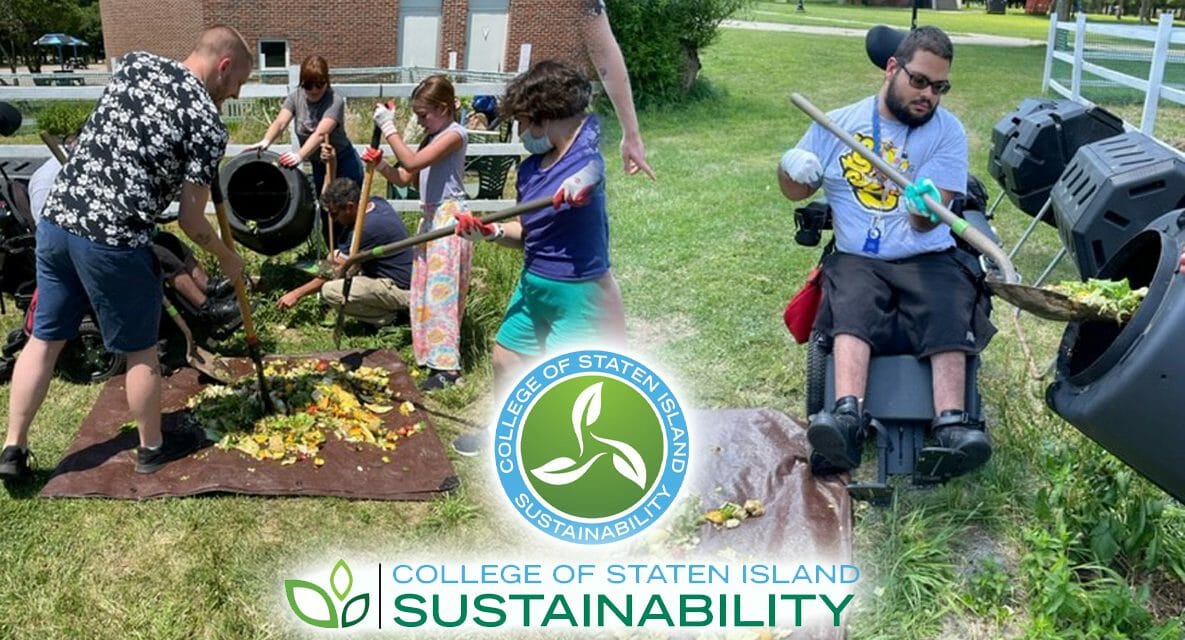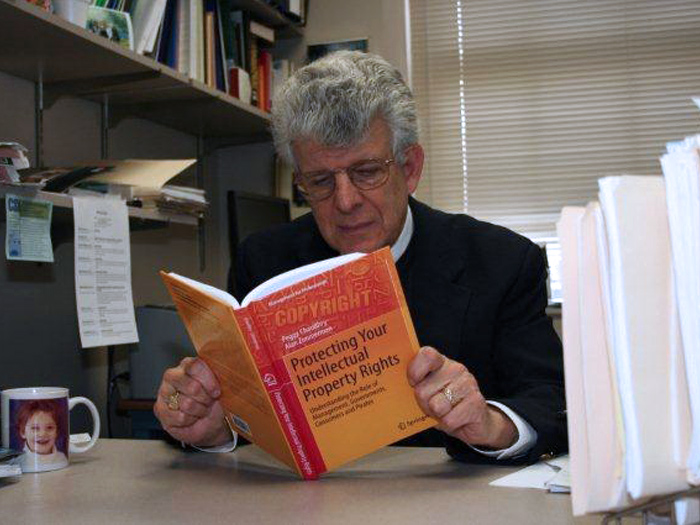On Thursday, June 30, students at the College of Staten Island’s Melissa Riggio Higher Education Program (MRHEP), a non-credit-bearing college experience program that allows neurodiverse students to take college classes and participate in student activities for free, helped compost the latest batch of food scraps from the cafeteria kitchen, continuing CSI’s sustainability efforts on campus.
Under the supervision of Nora Santiago and Brenda Franco, who run sustainability initiatives on campus. For this project, students poured bins of fruit and vegetable scraps onto tarps, chopped them into smaller pieces, and shoveled them into one of CSI’s five composters. The barrel composter will be filled with equal volumes of food waste and wood chips to ensure an optimal nutrient balance, and when it is full, it will be left to sit for two months, being watered regularly and rotated weekly. When the compost is fully broken down, it will “cure” in the open air for another two months before being ready to use to enrich the soil in CSI’s gardens, which provide fruits, vegetables and herbs to Dining Services, closing the loop of nutrients. Composting reduces the amount of waste CSI sends to landfills, where it would release methane, a powerful greenhouse gas, due to breaking down in an oxygen-poor environment.
The sustainability effort will not end there for students in the MRHEP. They will help maintain CSI’s gardens, greenhouse, and compost pile several times a week while learning about sustainability and the environment. CSI’s sustainability staff is working to involve students in MRHEP more fully in their campus-wide student activities in general – as well as students in the Creative Exchange Program, a program of evening classes for neurodiverse adults of all ages, some of whom were formerly institutionalized at Willowbrook, the former occupant of CSI’s physical campus.
“Sustainability initiatives like composting bring together people with all different abilities,” said Santiago, an Urban Policy Analyst for CSI. “It is a dream come true to be able to bring students of differing abilities, who tend to be underserved, into the fold of the College’s sustainability programming. I hope to increase the number of students of differing abilities learning and working alongside the rest of the student body to make the CSI community, and the wider world, a better place.”
To find more information on the CSI Sustainability effort and how to get involved, visit their Website.
By: Jessica Caron



![[video] Cusick: Assembly proposal seeks tuition freeze for CUNY, SUNY](https://csitoday.com/wp-content/uploads/2016/03/Cusick-Tuition-Freeze.jpg)













